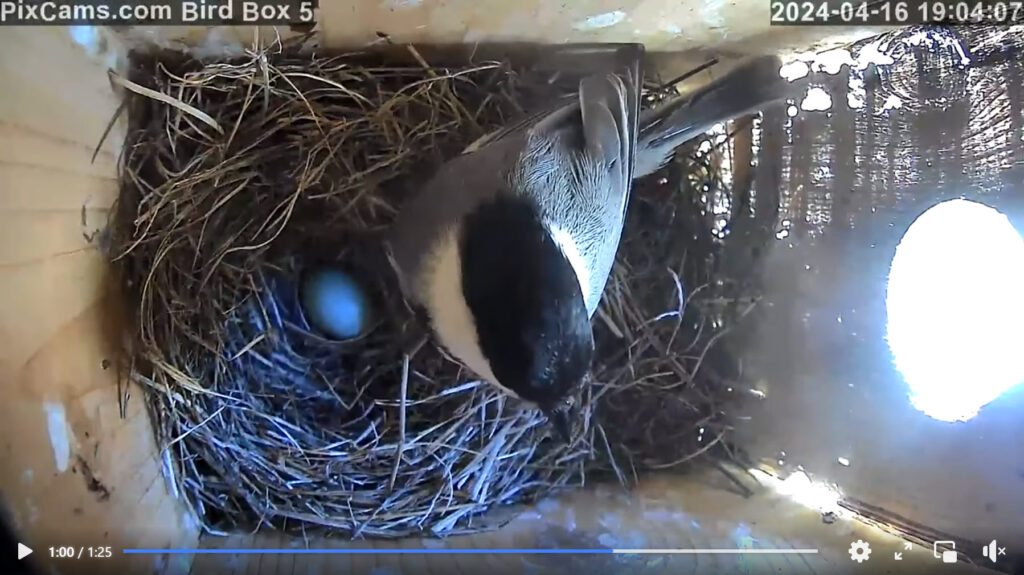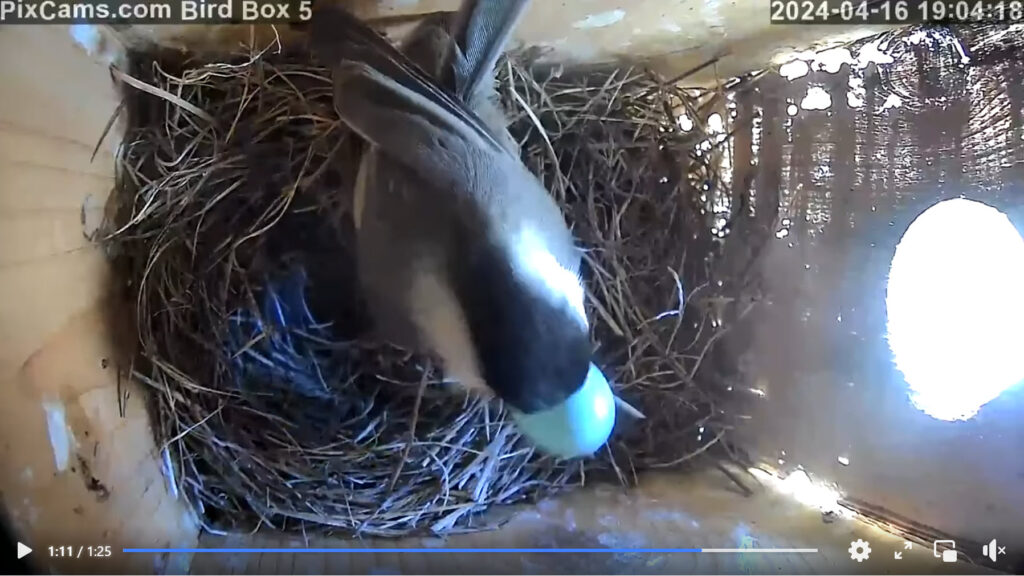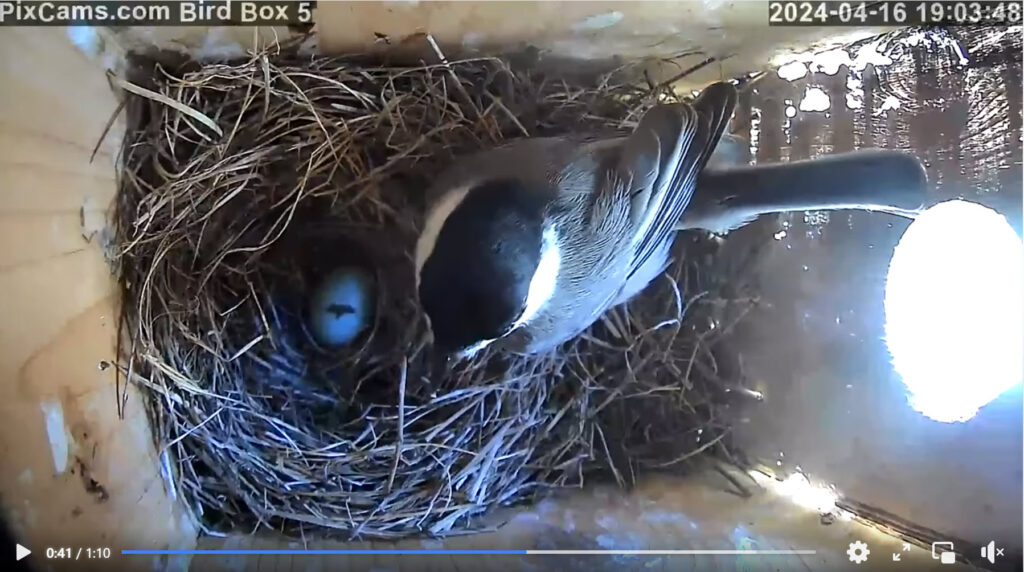We often think of chickadees as being meek birds that lose out to other cavity nesting competitors. This is a particular problem because they usually only have one brood, and rarely return to a failed nest site. But this week I saw several Facebook posts with nestcam footage showing a Carolina Chickadee pecking, eating parts of, and then removing an egg from a bluebird nest. See screenshots below from the PixCams.com video. One person who posted a similar video commented: “For all the “so called” experts here who say Chickadees do not throw out BB eggs….”



The facts are:
- NOBODY (even the “experts”) knows everything. Personally, I learn I was wrong about something every single day! It’s one of the reasons I like maintaining a website (versus publishing a book) because it is “etched in whipped cream.” If I’m not too lazy, I can update pages here when I learn something new.
- There ARE other more likely avian suspects when eggs disappear (e.g., House Sparrows and House Wrens.)
- Different locations and circumstances can present different problems. E.g., maybe hanging boxes work great in California, but are more likely to fail in Louisiana where tree climbing snakes are more common.
- Although a species often exhibits many commonalities, individual birds may behave in different ways. Some are more aggressive than others. Best to think in terms of “typically” or “generally.”
- Birds CAN learn from experience. Younger birds may behave differently than older birds. For example, it’s possible that a bird that has lost eggs or a nest site to a competitor will adapt and become more aggressive.
- We really have no idea why birds do certain things, or what they are “thinking.’ One of my favorite comments at a bluebird conference by an “expert” on sandhill cranes was along the lines of “If I tell you what a bird was thinking, I’m either wrong or lying.” For example, if I were a bluebird, I’d stay away from a box that had sticks in it, because it’s a sign that territorial house wrens have visited the box. But do they know that? Are they born knowing certain things? I’ve seen three-day-old baby ducklings go still as a statue and look to the sky when a plane or hawk fly overhead, even though they’ve certainly never seen either before.
- WE can learn from experience and from others. And we are learning a LOT from video. Who knew that deer ate the eggs of ground nesting birds before it was captured on game cameras? Who wasn’t surprised when a male eagle was caught on a nestcam killing and eating two of its own offspring?
Bottom line: This is a good reminder to “never say never.” We need to remain curious and skeptical, do research, look at scientific evidence, rely on credible sources and replicated studies, and keep learning.
PS: I always liked this quote: “A mind is like a parachute. It doesn’t work if it is not open. If someone is able to show me that what I think or do is not right, I will happily change, for I seek the truth….” But online I saw this quote being attributed to Meditations! Did they REALLY have parachutes in 180 A.D.? Or was this actually first said by Thomas Robert Dewar? Or Frank Zappa? I don’t know!
Don’t believe everything you read on the Internet, including on Sialis.org! Anybody can publish anything they want online. There is no dearth of misinformation out there.
MORE INFORMATION & LINKS:
- Who Trumps Who: Competition between cavity nesting birds
- All about Carolina Chickadees
- Predator ID and Solutions
- Birdality
- Research Priorities
There is no end to education….The whole of life, from the moment you are born to the moment you die, is a process of learning.”
– Jiddu Krishnamurti
